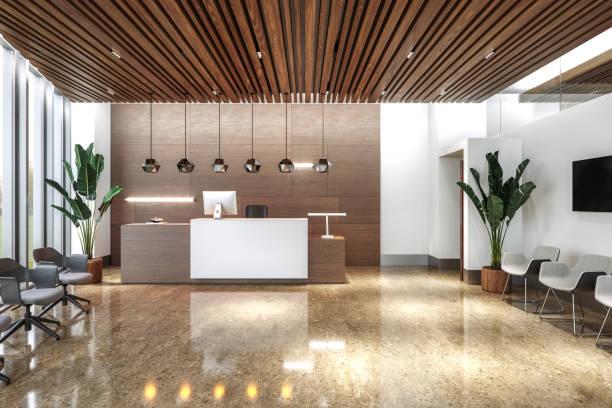Interconnected world, the reception desk serves as the frontline of businesses, playing a pivotal role in shaping the first impressions of clients, partners, and stakeholders. This holds particularly true in the Philippines, where the global marketplace beckons with opportunities and challenges alike. With a keen understanding of cultural nuances and a commitment to professionalism, reception desk practices in the Philippine global marketplace can make or break a company’s image. Let’s delve into some key practices that are essential for success.
Warmth and Reception Desk:
Hospitality is deeply ingrained in Filipino culture, known for its warm and friendly demeanor. This cultural trait can be reception desk leveraged at the reception desk to create welcoming environments that immediately put visitors at ease. Greetings with a genuine smile, polite gestures, and offering assistance proactively reflect the spirit of Filipino hospitality, leaving a lasting positive impression.
Cultural Sensitivity:
The Philippines boasts a diverse cultural landscape, with a blend of indigenous, Malay, Spanish, and American influences. Understanding and respecting these cultural nuances are crucial at the reception desk. For instance, addressing individuals with their appropriate titles (e.g., “Sir” or “Ma’am”) and using formal language (e.g., “po” and “opo” for respect) demonstrate cultural sensitivity and foster rapport.
Language Office Desk:
English is widely spoken in the Philippines, making it the primary language of business and communication. Receptionists office desk should possess strong proficiency in English to effectively interact with international clients and partners. Additionally, proficiency in other languages, such as Mandarin or Japanese, can be advantageous in catering to specific markets and enhancing the overall customer experience.
Professional Appearance:
First impressions are heavily influenced by appearances. Receptionists should maintain a professional appearance, adhering to dress codes and grooming standards set by the company. Neat attire, well-groomed appearance, and wearing a welcoming smile contribute to a polished image that reflects positively on the organization.
Efficiency and Organization:
In a fast-paced global marketplace, efficiency is paramount. Receptionists should possess excellent organizational skills to manage incoming calls, messages, and appointments promptly and accurately. Implementing efficient systems, such as digital appointment scheduling software and call handling protocols, streamlines operations and ensures a seamless experience for visitors.
Crisis Management Skills:
Handling unexpected situations and crises gracefully is a hallmark of professionalism. Receptionists should undergo training to effectively manage various scenarios, such as emergencies, irate clients, or technical glitches. Remaining calm, maintaining composure, and following established protocols can mitigate potential disruptions and uphold the reputation of the organization.
Technology Proficiency:
In an era driven by technology, receptionists must be adept at utilizing various tools and systems to enhance productivity and communication. Proficiency in office software, email management, teleconferencing platforms, and visitor management systems is essential for efficient operations at the reception desk.
Cultural Etiquette:
Beyond language proficiency, understanding cultural etiquette is vital when dealing with international clients and partners. Familiarity with cultural norms regarding greetings, gestures, and business protocols can prevent misunderstandings and foster positive relationships. Receptionists should undergo cultural sensitivity training to navigate diverse cultural landscapes effectively.
Customer Relationship Management:
Building strong relationships with clients and stakeholders is fundamental to business success. Receptionists play a crucial role in cultivating these relationships by providing personalized attention, anticipating needs, and demonstrating a genuine interest in the well-being of visitors. Effective customer relationship management at the reception desk contributes to enhanced loyalty and positive word-of-mouth referrals.
Continuous Improvement:
The global marketplace is dynamic and ever-evolving, requiring constant adaptation and improvement. Receptionists should embrace a mindset of continuous learning and professional development to stay updated on industry trends, best practices, and technological advancements. Participating in training programs, seeking feedback, and implementing innovative solutions fosters growth and ensures relevance in the competitive landscape.
Reception desk practices play a pivotal role in shaping the image and reputation of businesses in the Philippine global marketplace. By embracing warmth, cultural sensitivity, professionalism, and technological proficiency, receptionists can effectively navigate the front lines and create exceptional experiences for clients and stakeholders. Through continuous improvement and a commitment to excellence, reception desk practices can become a cornerstone of success in the dynamic world of international business.






